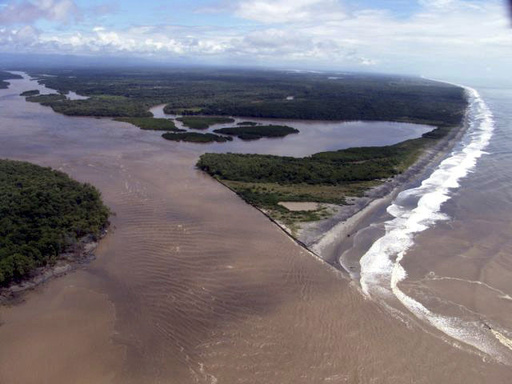
In a significant development for environmental conservation, El Salvador has entered a deal to refinance $1 billion of its debt, primarily benefiting the Lempa River, one of Central America’s longest rivers. This agreement, which has the backing of the U.S. government, aims to capitalize on a growing trend of debt-for-nature swaps, where financial relief is tied to environmental improvements.
Under the newly announced deal, El Salvador will allocate $350 million, which it expects to save through refinancing, towards projects designed to preserve the Lempa River. This river is crucial as it supplies approximately two-thirds of the country’s drinking water.
Jorge Oviedo from the Environmental Investment Fund of El Salvador expressed optimism, stating that the agreement will enhance the quality of life for citizens while bolstering necessary climate resilience in the nation. His organization will collaborate with Catholic Relief Services to implement conservation initiatives effectively.
The Lempa River originates in Guatemala, traverses through Honduras, and flows into El Salvador, ultimately reaching the Pacific Ocean. Paul Hicks, interim program director for the Rio Lempa Conservation and Restoration Program at Catholic Relief Services, emphasized its importance by saying, “I describe it as the heart and lungs of the country.” The river not only provides drinking water but also supports hydroelectric energy, agricultural irrigation, and industrial processes.
However, the river faces several challenges, including deforestation and poor agricultural practices that threaten its watershed. Hicks mentioned issues such as tributaries drying out due to excessive water diversion and a lack of treatment for industrial and sanitation water usage.
Debt-for-nature swaps are gaining traction again after 40 years of existence. Initially conceived during the Latin American debt crisis in the 1980s, these arrangements redirect funds from failing governments to conserve vital rainforest habitats. Though many earlier swaps were smaller and less monitored, recent examples, like Ecuador’s $323 million deal for the Galapagos Marine Reserve, demonstrate their increasing relevance.
Traditionally, these swaps focused on loan forgiveness by countries like the U.S. and various European nations. However, the recent economic fallout from the COVID-19 pandemic and the resulting inflation had exacerbated the debt levels in developing nations, prompting a shift toward addressing private debt instead.
The restructuring of El Salvador’s debt is a crucial step, as the savings are earmarked specifically for the conservation of the Lempa River. Elizabeth Losos from the Nicholas Institute for Energy, Environment & Sustainability at Duke University noted that while previous swaps were less impactful, the current agreements offer a more substantial benefit.
Losos explained that this arrangement reduces El Salvador’s financial burden while channeling funds into a universally beneficial initiative. She stressed that for such swaps to realize their full potential, clear objectives and measurable outcomes must be established, with payments contingent on achieving those goals. Past versions of these agreements often struggled with inadequate oversight.
Though Catholic Relief Services is not primarily recognized for environmental initiatives, Hicks pointed out their extensive involvement in water security projects within El Salvador, including partnerships with the U.S. International Development Finance Corporation, which facilitated this refinancing deal.
The aim is to develop a comprehensive watershed management plan for the Lempa River within the next two years. Official program activities will commence next year with the initiation of project grants, according to Hicks.
This commitment represents a continuation of El Salvador’s pioneering efforts in environmental protection, notably its 2017 prohibition on metal mining to safeguard water resources. President Nayib Bukele has labeled this agreement as the most ambitious environmental initiative in El Salvador’s history, reflecting the country’s ongoing dedication to its environmental health.
